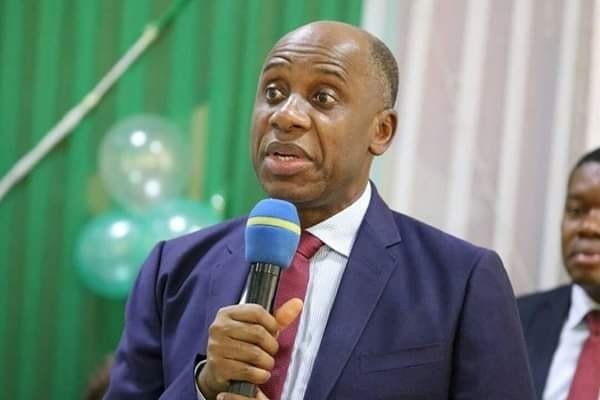Nigeria Loses $10bn Annually To Illegal Fishing – Amaechi
Nigeria is losing the sum of $10 billion annually to illegal fishing on the country’s water ways, the Minister of Transportation, Rotimi Amaechi, has said.
He made this known at a Pre-#NES26 event with the theme “Investment Opportunities in Nigeria’s Blue Economy” organised by the Nigerian Economic Summit Group (NESG) and the Federal Ministry of Finance, Budget and National Planning in collaboration with the Federal Ministry of Environment.
Amaechi, who was represented by a Director in the Ministry of Transportation, Dr. Paul Adaliku, stated that the dumping of toxic waste and indiscriminate use of plastics are hindering the growth of Nigeria’s maritime economy.
The minister said the COVID-19 pandemic has created a sense of urgency for new growth and the blue economy represents a beacon of hope for Nigeria.

He added that the Federal Ministry of Transportation will liaise with the Nigeria Maritime Administration and Safety Agency (NIMASA) by adopting the African Union’s (AU) recommendations to aid the stimulus of Nigeria’s blue economy.
“The partnership with the NESG through the Public-Private Partnership model will ensure no one is left behind in galvanizing Nigeria’s Blue Economy and that the government is working with NIMASA to set a framework of how all stakeholders can work together seamlessly,” Amaechi said.
The Vice-chairman of NESG, Niyi Yusuf, said Nigeria is desirous to join the maritime world and gain from the blue economy and that the Nigerian maritime sector is capable of generating as much as N7 trillion annually and 4 million jobs in the next five years if properly harnessed.
“We are not on track to harness the benefits of the blue economy and this is a good time to share ideas and resources to establish a unified approach towards the development of the country’s blue economy,” Yusuf said.
The Executive Secretary United Nations Environment, Abou Bamba, explained that the blue economy presents a lot of opportunities for Nigeria and West Africa especially in fishing, aquaculture, shipping and port-related activities, “and that countries can only have control of the blue economy when they control the tools for transportation of goods and services.”
With the blue economy model, Bamba noted that West African countries can solve the problems of traffic jams and unemployment by utilizing the lagoon system and unskilled jobs through beach and ocean line cleaning respectively.


Comments are closed.